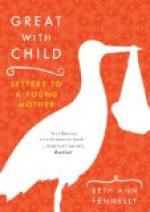Potatoes are a good article of diet—to be used once a day—though they are not very nutritious. They are best either steamed or roasted in the ashes. They are also excellent when boiled. Turnips are also good. Onions are not so useful as is generally supposed, except for the purposes of medicine.
Beets; in small quantity, and carrots and asparagus, and above all, beans and peas—but not their pods—are tolerable food once a day, during most of the year, except it be the middle of the winter. But neither these, nor potatoes, nor any other vegetables, ought to be cooked in any way with fat, or fat meat, or butter; or be mashed after they are cooked, or eaten with oil or butter.
If there be an exception to this general rule—which may seem to be rather sweeping—it should be in favor of a little sweet oil on rice, or on bread puddings. But the common practice, founded upon the apparent belief that we can scarcely eat anything until it is well covered with lard or butter, is quite objectionable—nay, it is even disgusting. No pure stomach would ever prefer oily bread, or pudding, or beans, or peas; and most people would abhor the sight of such a strange combination, were not habit, in its power to change our very nature, almost omnipotent.
SEC. 10. Remarks on Fruit.
There is a very great diversity of opinion on the subject of fruit. Some maintain that all fruit, even in the most ripe and perfect state, is of doubtful utility, especially for children. Others say none is hurtful, if ripe, and eaten in moderate quantity. Some require care in making a proper selection; but here again, in regard to what constitutes a proper selection, there is a difference of opinion. Some consider fruits easy of digestion; others believe they are digested only with very great difficulty.
When the cholera prevailed in the large cities of the United States, a majority of the physicians believed all fruits, even those which were ripe, to be injurious in their tendency. But it was insisted by the minority—I think very justly—that whenever fruit appeared to be injurious, it was accidental—that is, the disease, being prepared to make its attack just at that time, happened to do so immediately after the use of fruit, rather than something else, and especially in the season of fruits—or on account of excess; or (which was certainly the case in some instances) because the quality of the fruit was bad.
At present, the weight of testimony on this subject—estimating according to talent, and not according to numbers—is in favor of good fruit, used with moderation—even in the face of the cholera. Dr. Dunglison—one of the last to adopt such an opinion—appears to be in its favor.
On several points, in regard to fruit, I believe that among medical men there is no essential difference of opinion. As I always prefer, in controversies, to see in how many things antagonists agree, before proceeding to the points in which they differ, I will here endeavor to enumerate them.




